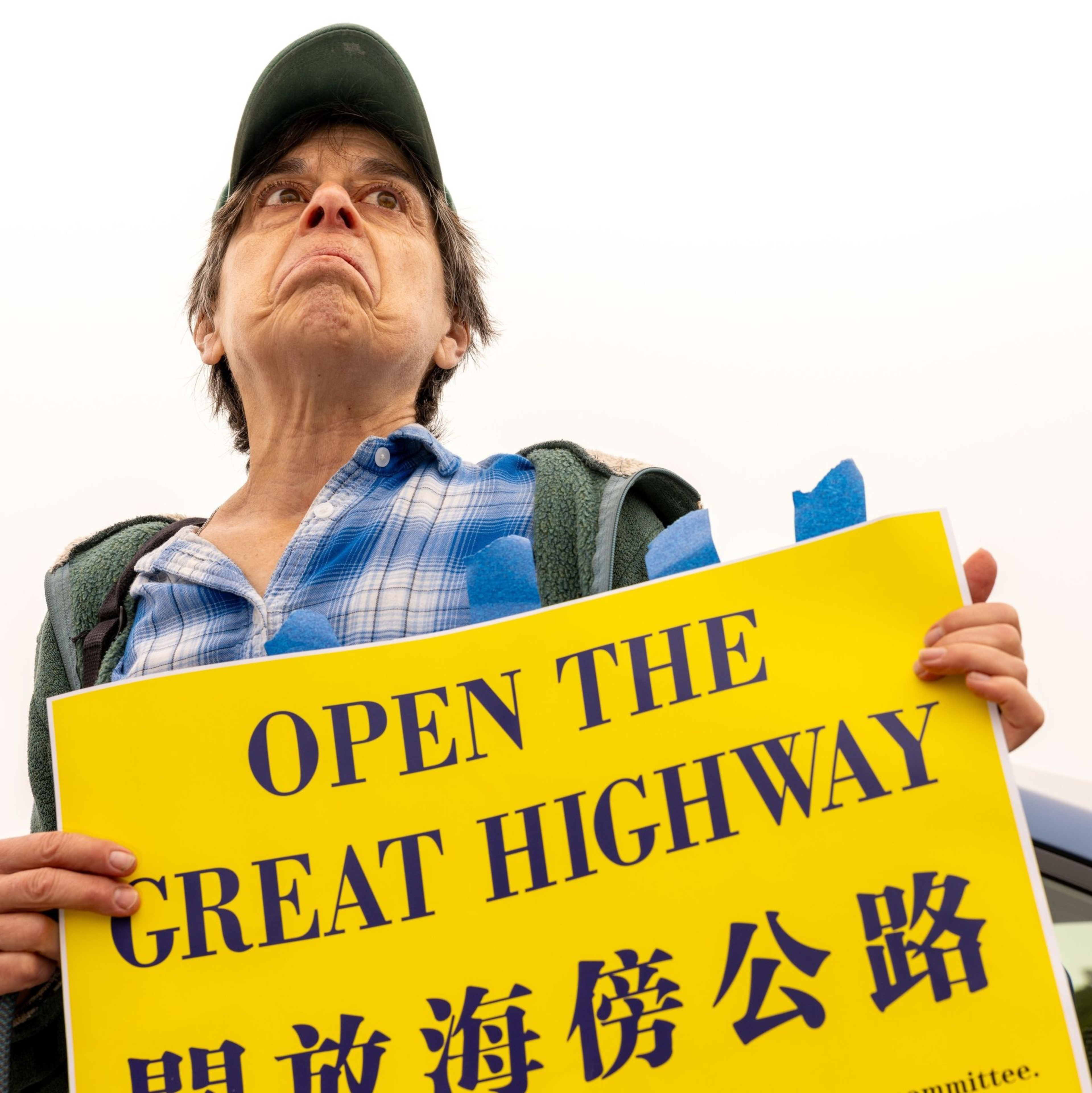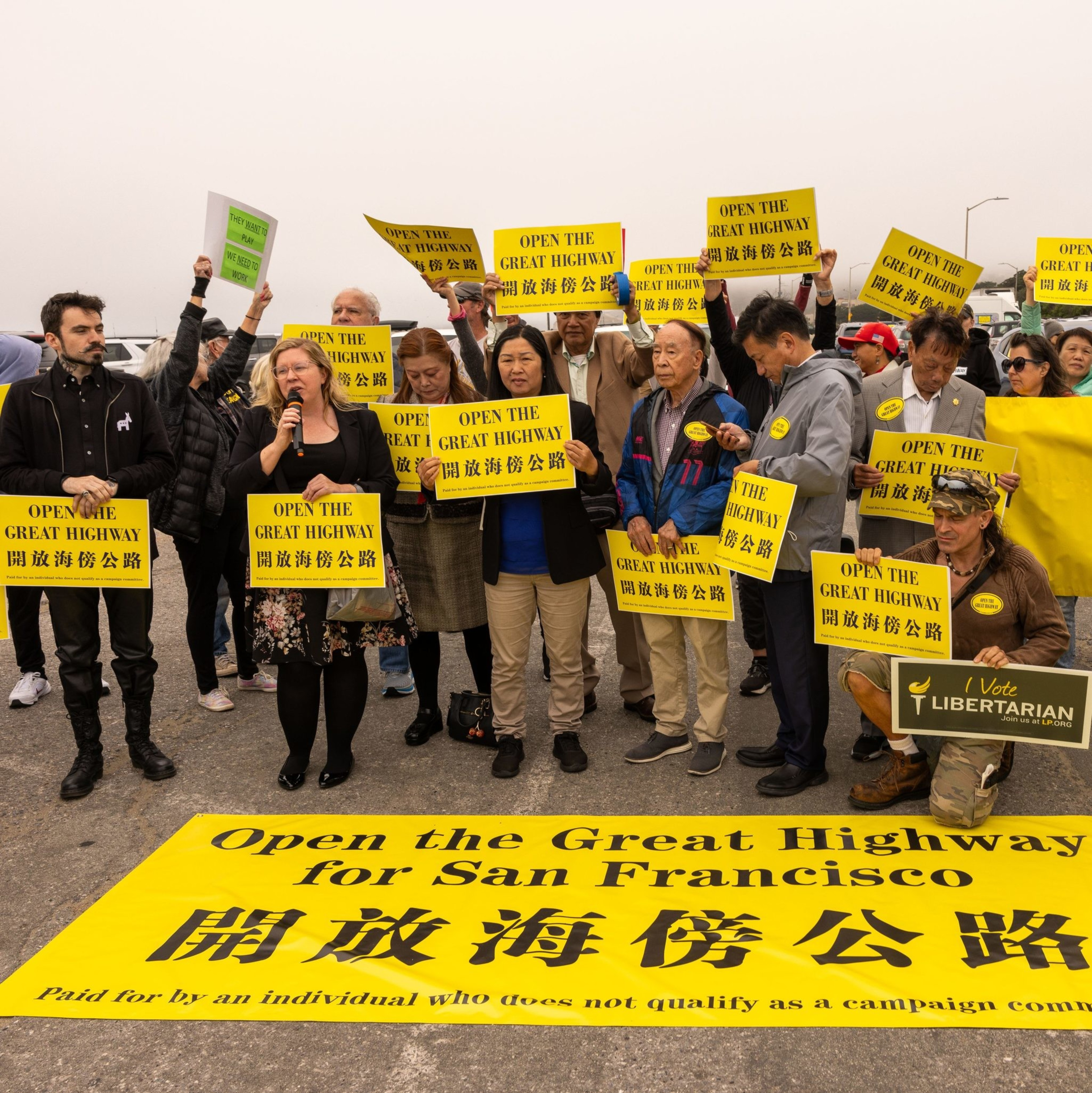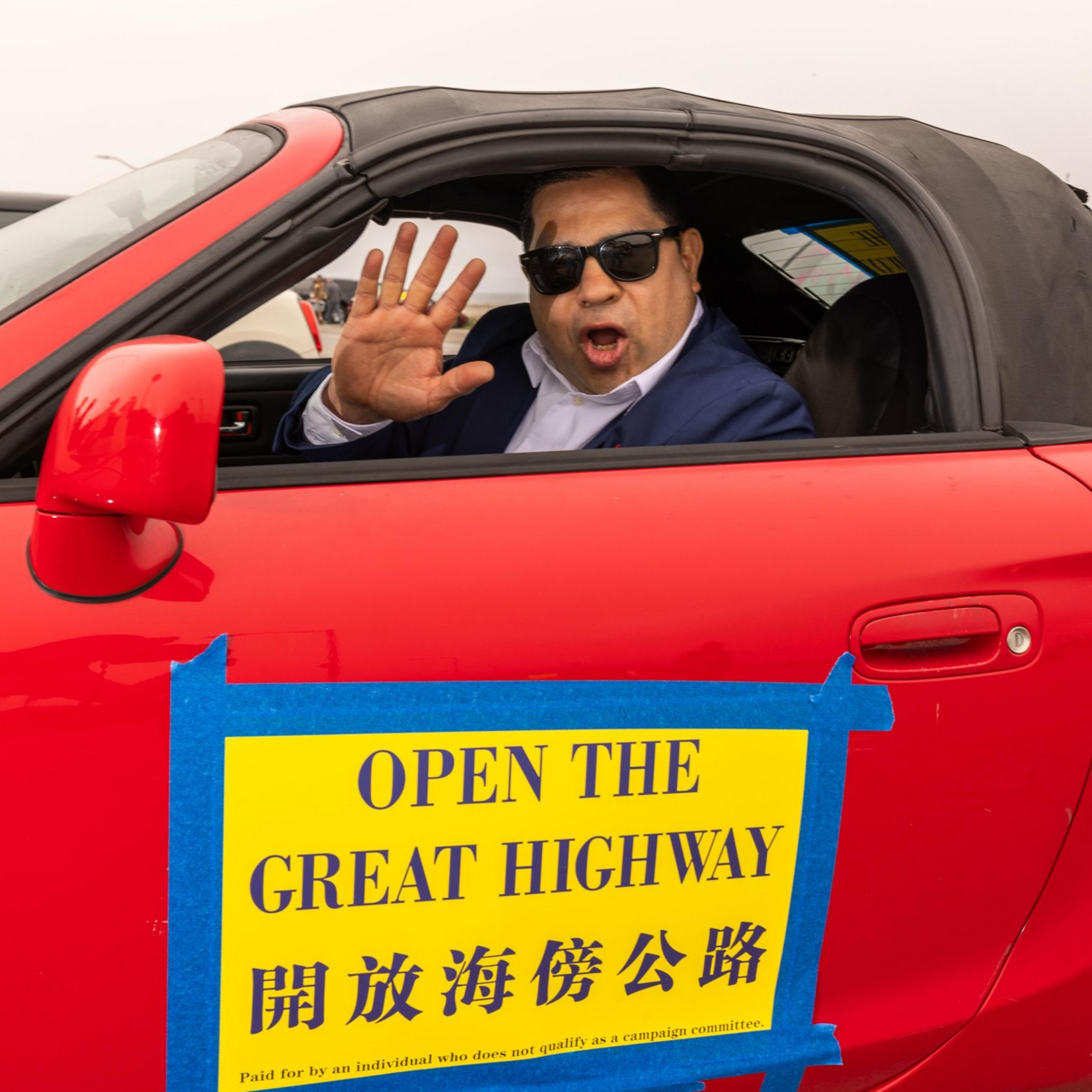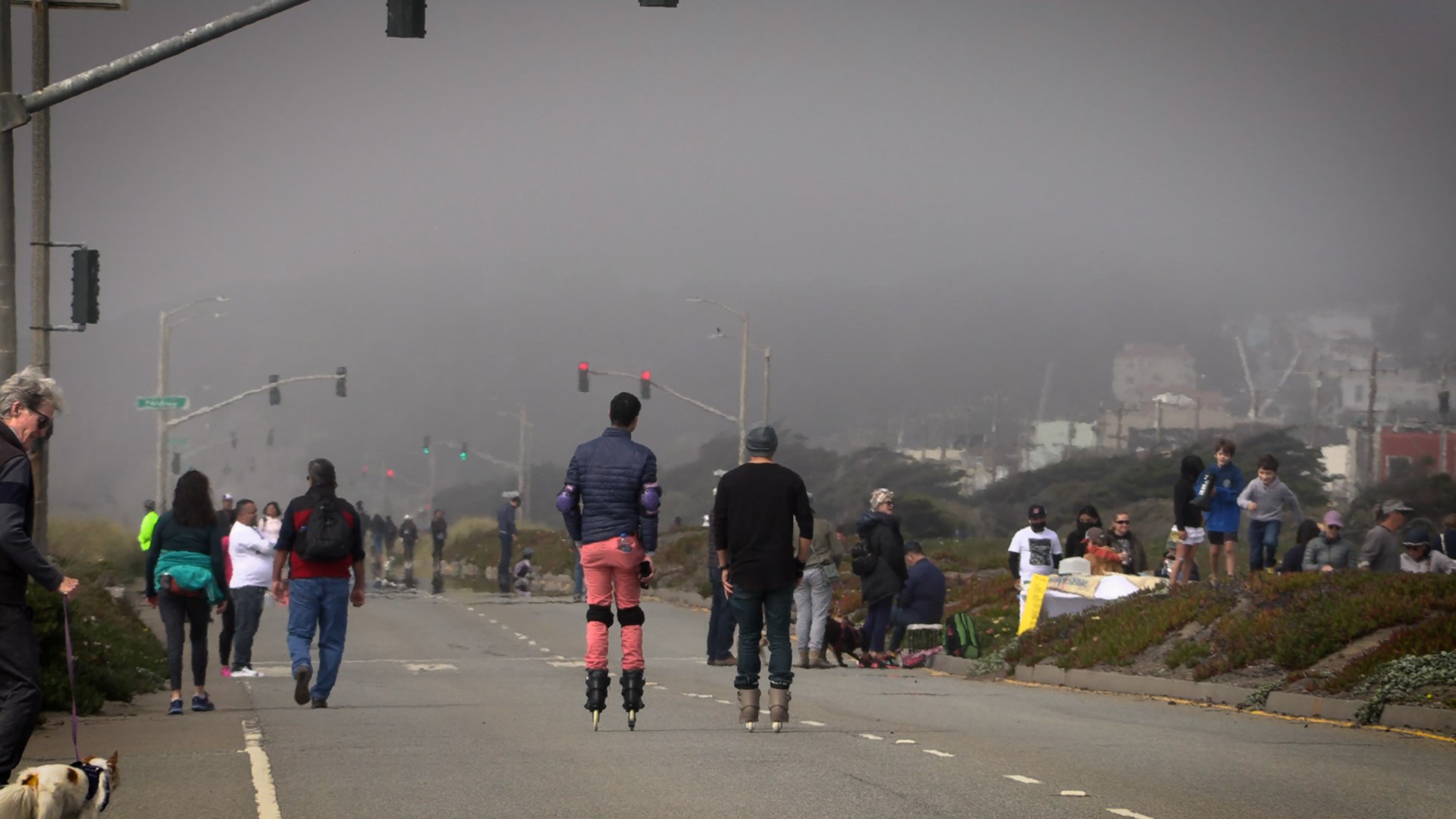It was a chilly, windy Thursday morning — good weather for getting mad. Denise Selleck drove to a parking lot near Ocean Beach to meet up with other motorists who had gathered to fume before forming a protest caravan that would take over the Great Highway.
Selleck was one of dozens of protesters opposing the potential permanent closure of the Great Highway and its transformation into a park. Located on the west end of the Outer Sunset, the coastal road is open to cars during weekdays and closed on weekends.
“I’ve never felt as dismissed and disrespected as I did,” Selleck, a 67-year-old retired teacher at City College, told The Standard. She said keeping the Great Highway open to cars is safer than rerouting them to other roads in the Sunset.

Conflicts between drivers relying on vehicle access and parking spaces and urban advocates for bicyclists, pedestrians and public transit have been on full display in recent years in San Francisco.
This schism will be reflected on the ballot in November, when voters will decide whether to permanently close the Great Highway to cars. Fed-up drivers are organizing to fight the measure.
The protesters at Thursday’s car parade, which was organized by Chinese American community activists, covered their windows with yellow posters saying “Open the Great Highway” and drove around the Sunset. Some used loudspeakers to yell the slogan. They argued that the roadway is important for west-side families and that the neighborhood already has plenty of park access at Golden Gate Park.
The opponents of the Great Highway closure are preparing for a political fight (opens in new tab), recruiting campaign consultants and lobbying Supervisor Joel Engardio to revoke the ballot measure.

Road closures are not the only action that has triggered pushback from drivers. Bike lane installations, which may take away parking and reduce car lanes, have also caused a backlash.
The San Francisco Municipal Transportation Agency hosted a town hall Wednesday night on its bike lane safety network, a citywide plan to make neighborhoods more bike-friendly. John Paul, a 77-year-old resident of the hilly Twin Peaks neighborhood, attended to express his frustration.
“I depend on a car and parking,” Paul said. “What happens is, I can’t end up getting around.” He said biking is not an option for seniors and those who live in hilly areas, and he sometimes has to drive to Daly City to buy groceries because it’s increasingly hard to find parking.
Paul said there’s a growing community of drivers upset with road and traffic changes, and he feels his voice is being drowned out by young bicycling advocates.

The recent controversy over the Valencia Street bike lane, which has been roundly criticized by local merchants, has encouraged more motorists to speak out.
It’s not clear if those voices represent a majority, even in car-friendly west side neighborhoods. In 2022, San Francisco voters approved the permanent car ban on part of JFK Drive inside Golden Gate Park, a contentious fight that divided the west side. The Great Highway closure is likely to receive citywide support, too.
Winner takes all?
Lucas Lux, president of Friends of Great Highway Park, which supports the road closure, believes it shouldn’t be “a driver-versus-cyclist issue.”
‘It’s about an oceanfront park for everybody, no matter how you get there,” Lux said.
Engardio, the supervisor of the Sunset and a major proponent of the ballot measure to transform the roadway to a park, said in an interview that both sides of the conflict have the same goal: a city that functions.
“That means people need to get where they need to go in their car, and we also need better public transportation, safe streets for people to ride their bikes and cross so they don’t get hit by cars,” Engardio said.
He emphasized that the partial closure of the Great Highway, a two-mile way that runs from Lincoln to Sloat Boulevard, has little impact on drivers getting into the Sunset. He acknowledged that after a permanent closure, the city will need to come up with a better transportation design to make the Sunset a safer driving and walking environment.

Selleck disagreed. She said she has witnessed more dangerous driving behavior in the district when the Great Highway is closed to cars during the weekends or on days when it’s covered by sand.
“There’s going to be a lot more accidents when this is closed down,” Selleck said.
Connie Chan, the outspoken Richmond supervisor who opposes closures on both JFK Drive and the Great Highway, criticized the November ballot measure as a “top-down, winner-takes-all approach” that pits neighborhoods against one another.
“This is a false-choice scenario in city planning instead of creating a compromise that works for all San Franciscans,” Chan said. “We are forcing a wedge issue onto voters.”


